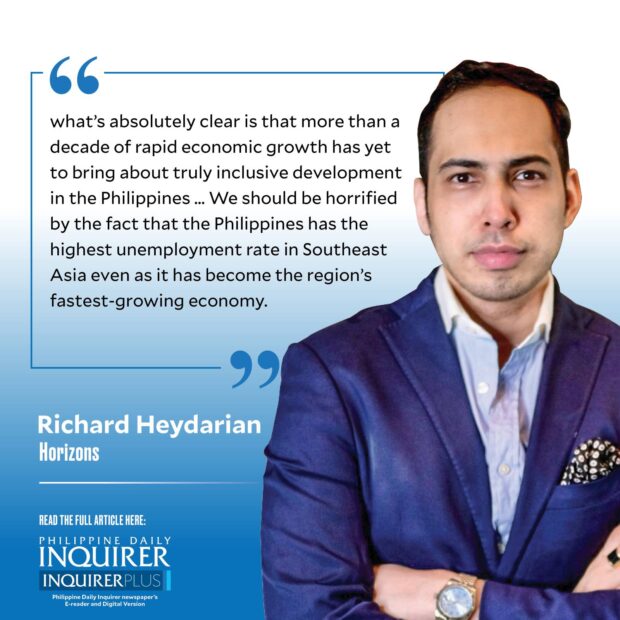Marcos needs an industrial policy strategy

The Philippines is a strange place. It’s a supposedly booming economy where finding fulfilling employment is increasingly challenging and, statistically speaking, even becoming unemployed is difficult. In 2004, the National Statistical Coordination Board passed Board Resolution No. 15, which laid down the foundation for the revision of the definition of “unemployment” in the Philippines.
The following year, suddenly becoming “unemployed” meant that one should simultaneously satisfy three criteria. Namely, an individual should not only be (i) out of work but also (ii) not seek employment and (iii) not “available for paid employment or self-employment in the past week or within two weeks.” As a result of this methodological change, suddenly millions of Filipinos ended up in a kind of statistical limbo: neither really employed, but also not qualified to be “unemployed” and, accordingly, apply for any corresponding benefits and social safety nets.
The new definition immediately led to a drop in the Philippines’ unemployment rate by almost two percentage points and an almost three percentage points drop in the labor force participation rate. In fairness, the methodological shift was part of broader efforts to ensure our labor statistics adopted international practices.
Nevertheless, what’s absolutely clear is that more than a decade of rapid economic growth has yet to bring about truly inclusive development in the Philippines. Yes, food inflation matters, and we should be worried about any major uptick in the prices of basic commodities.
But we should also be horrified by the fact that the Philippines has the highest unemployment rate in Southeast Asia even as it has become the region’s fastest-growing economy. In fact, the underemployment rate (16 percent), which truly measures the quality of jobs available to average Filipinos, is among the worst globally.
The Philippines’ perennial development crisis, despite an uptick in gross domestic product (GDP) growth rate in recent years, is a sad reflection of the desperate state of manufacturing in the country.
As leading development economists such as Harvard University’s Dani Rodrik have consistently argued, manufacturing is indispensable because it “can absorb large numbers of workers with moderate skills, providing them with stable jobs and good benefits” as well as remaining “a potent source of high-wage employment.”
One doesn’t need to have perfectly American-accented English or a Ph.D. to end up working in a world-class auto-manufacturing plant, which benefits from economies of scale as it expands its overall production. And crucially, quality manufacturing provides the platforms and blueprints for the development of indigenous industries, which ensure a greater share of export earnings are kept at home.
Think, for instance, of countless Chinese car manufacturing giants that were, until a decade ago, just assembly lines for Japanese and Western counterparts. As Rodrik correctly argues, even in our supposedly post-industrial age of artificial intelligence and “digital” economy, some nations “ignore the health of their manufacturing industries at their peril.”
The Philippines—and, until recently, India and Indonesia—is a classic example of a nation, where authorities have foolishly overlooked the “manufacturing imperative.” Despite modest growth in Philippine productivity rates, manufacturing as a share of Philippine GDP (below 20 percent) is abnormally low and has even been on a downward trajectory over the past decade. Much of growth and employment in the Philippines is generated by largely low-end services, speculative sectors like real estate and retail, and the informal sector—none of which really provide quality jobs for the majority of Filipinos.
A cursory look at the success stories in our own neighborhood—from Japan at the turn of the 20th century, to South Korea and Taiwan before the end of the century, and Thailand, China, and Vietnam in the early 21st century—makes it absolutely clear that proactive industrial policy by strong state institutions is the way to go.
Threatened by the dynamism of Asian economies and electoral rage across “rustbelts” at home, even America—the heartland of “free market economics”—has now embraced industrial policy with gusto. President Marcos’ plans for meeting with tech titans such as Elon Musk will hopefully produce more than just photo-ops and empty pledges, but instead high-end, quality manufacturing investments. Obviously, though, we first need to have a proper industrial strategy and the right investment conditions at home.
—————-
rheydarian@inquirer.com.ph




















